Alumna Interview: Ashley Milanese (Voice '15, Opera '17, Opera '18)

Lauded for her “soaring lyric soprano capable of heart-stopping soft effects” (Philadelphia Magazine) and praised by Opera Magazine as “beautifully voiced,” Italian-American Ashley Milanese (Voice ’15, Opera ’17, Opera ’18) has quickly emerged as an exciting young presence in the operatic world. The Curtis alumna has made notable appearances at the Metropolitan Opera, Teatro Regio Torino, Komische Oper Berlin, Opera Philadelphia, Mostly Mozart Festival, Opera Omaha, Ljubljana Festival, Adelaide Music Festival, and many more prestigious houses. She recently made her New Orleans Opera debut as the Sandman in Engelbert Humperdinck’s Hansel and Gretel and joined On Site Opera as Giorgetta in Giacomo Puccini’s critically acclaimed production of Il tabarro in May 2023 at New York City’s South Street Seaport.
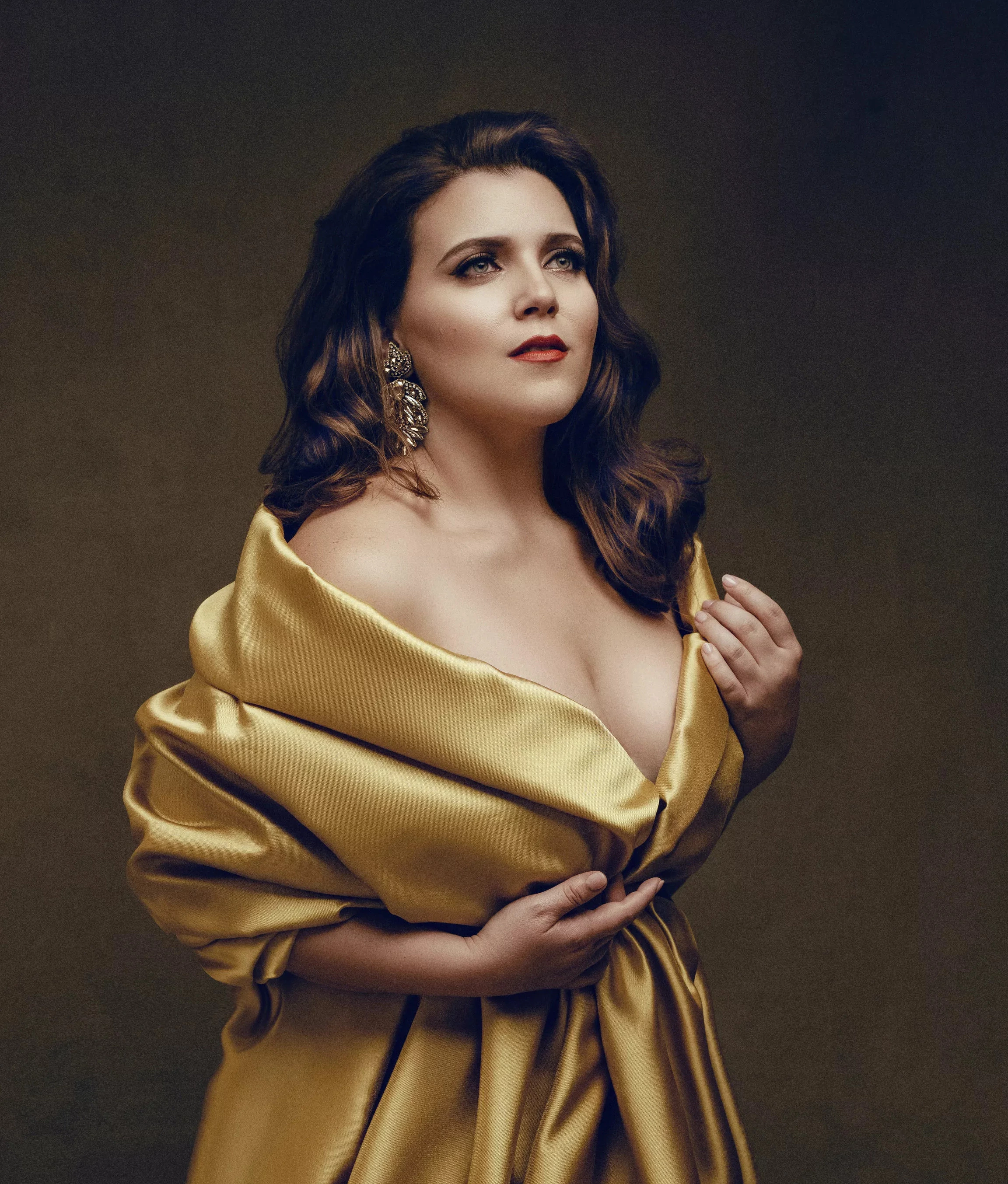 Passionate about contemporary music, Ms. Milanese has collaborated with many composers, including Kevin Puts, Rene Orth, Tobias Picker, David T. Little, Daniel Schnyder, and Nico Muhly. She has covered lead roles in multiple operatic premieres, including Lola in David Hertzberg’s The Wake World and Bess McNeil in Missy Mazzoli’s Breaking the Waves. Ms. Milanese was also the original Chan Parker and Aveline Mortimer in Opera Philadelphia’s workshops of Charlie Parker’s Yardbird and Elizabeth Cree, respectively. Winner of the 2018 Opera Foundation competition, receiving the Amber Capitol Scholarship and a residency with Teatro Regio Torino, she has also received awards from the Metropolitan Opera National Council Auditions and was named a winner in the 2017 New Orleans and Puerto Rico district finals.
Passionate about contemporary music, Ms. Milanese has collaborated with many composers, including Kevin Puts, Rene Orth, Tobias Picker, David T. Little, Daniel Schnyder, and Nico Muhly. She has covered lead roles in multiple operatic premieres, including Lola in David Hertzberg’s The Wake World and Bess McNeil in Missy Mazzoli’s Breaking the Waves. Ms. Milanese was also the original Chan Parker and Aveline Mortimer in Opera Philadelphia’s workshops of Charlie Parker’s Yardbird and Elizabeth Cree, respectively. Winner of the 2018 Opera Foundation competition, receiving the Amber Capitol Scholarship and a residency with Teatro Regio Torino, she has also received awards from the Metropolitan Opera National Council Auditions and was named a winner in the 2017 New Orleans and Puerto Rico district finals.
Ms. Milanese, a recipient of Curtis’s inaugural Young Alumni Fund, discusses her fond memories of studying at the school and her love for new works. The New Orleans native and opera program coordinator for the National Children’s Chorus’s Vail Opera Camp offers inspiring advice about building a thriving voice studio while pursuing an international career as an opera singer.
As an alumna of Curtis, what do you believe is the school’s most enduring impact on your life and your development as a musician?
Personally, I would say that the motto, “Learn by doing,” has had the most profound and influential impact on me, especially within the voice department. During my time at Curtis, Mikael Eliasen strongly emphasized this approach. It provided us with countless opportunities that shaped our paths and allowed us to explore and develop our own voices through participating in full professional productions.
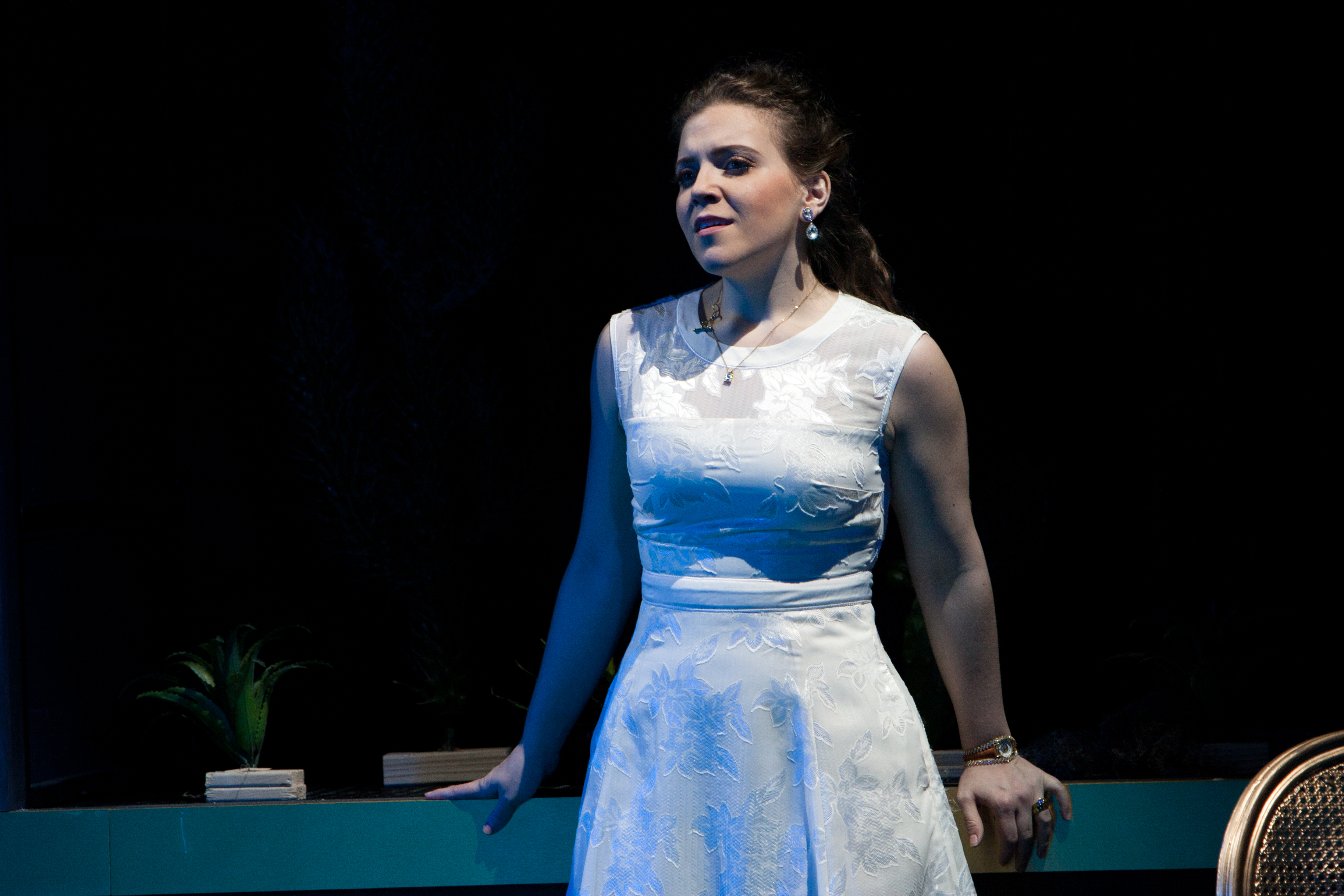 “Entrepreneurial spirit” and Curtis graduates are often mentioned together. How do you feel the school fosters this attribute in its students?
“Entrepreneurial spirit” and Curtis graduates are often mentioned together. How do you feel the school fosters this attribute in its students?
At Curtis, I vividly remember a prevalent sense among the coaches and mentors that students needed to have their own ideas, be their own artists, and nurture their creativity. The emphasis was on being an individual and having a unique voice. This mindset was instilled in the coaching room, where we were encouraged to express our own thoughts and ideas. This approach has led to many opportunities, both opera related and beyond.
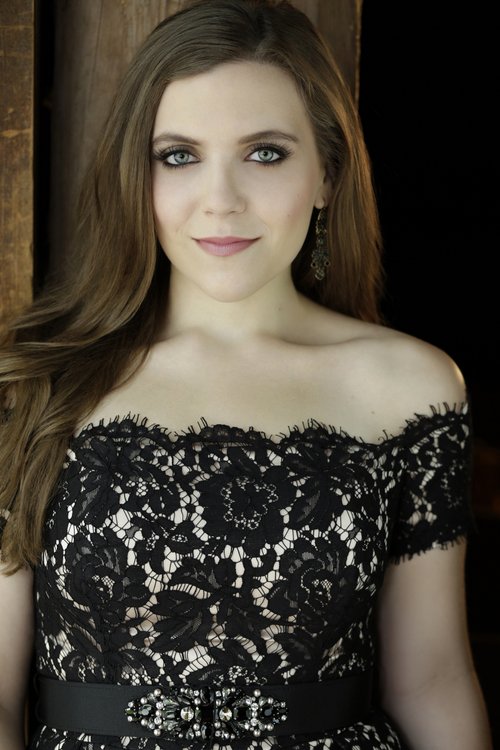 You are a strong proponent of new works and contemporary music. What attracts you to these modern stories as a musician and actor, and what challenges have you faced in bringing these characters to life compared to traditional operatic roles?
You are a strong proponent of new works and contemporary music. What attracts you to these modern stories as a musician and actor, and what challenges have you faced in bringing these characters to life compared to traditional operatic roles?
My introduction to new music happened at Curtis, where we collaborated with Opera Philly and participated in workshops. One of my early experiences was performing in Kaiser von Atlantis, a relatively newer opera. It was my first show at Curtis, and I fell in love with it. Exploring new colors, pushing boundaries, and working closely with composers during workshops sparked my passion for new works.
In terms of challenges, the music itself can be demanding at times, with complex rhythms and unique structures. However, the reward comes when you grasp it and become an integral part of the creative process. Collaborating with composers allows for a more interactive experience. I enjoy diving into the characters of new works, which, in my opinion, can be more accessible than some of the iconic roles from the traditional operatic canon. With new works, you have the opportunity to find your authentic voice alongside the composer, all within a safe and supportive environment.
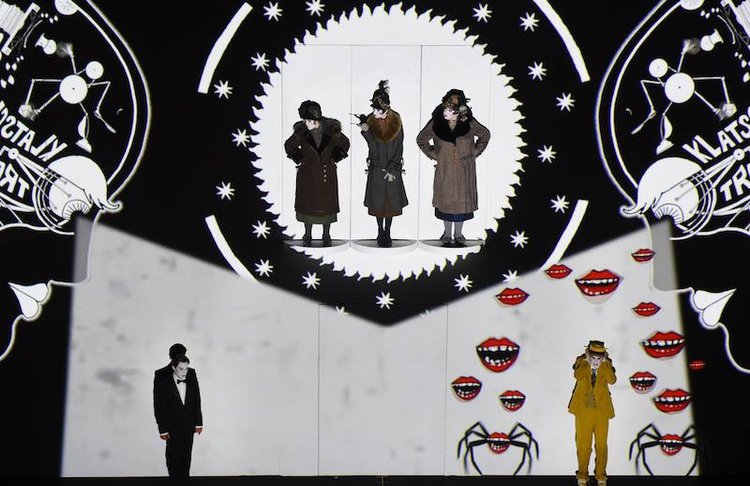 When you graduated from Curtis, what were your aspirations, and how have they changed or evolved over time?
When you graduated from Curtis, what were your aspirations, and how have they changed or evolved over time?
Upon graduating from Curtis, my aspirations were to sing a wide range of roles and perform in different houses. While those aspirations remain, my perspective has become more balanced. I now recognize the value of taking supporting roles, building relationships with companies, and getting to know the industry from various angles. The unexpected acceleration of my teaching career during the pandemic has clarified my voice and beliefs as a musician. It has opened up new avenues and strengthened my skills in ways I hadn’t anticipated. I now approach my own music with the mindset of how I would guide my students, which enhances all aspects of my craft.
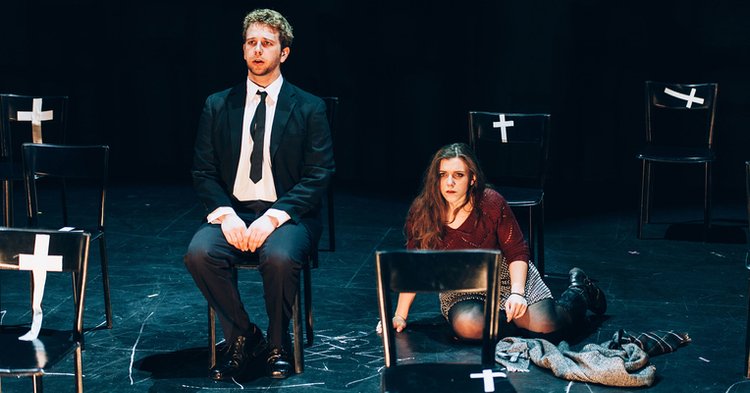 Are there any upcoming performances or projects you’d like to highlight?
Are there any upcoming performances or projects you’d like to highlight?
I was thrilled to perform in the War Requiem with the American Youth Symphony and National Children’s Chorus on February 25, 2023. Additionally, I will be singing an excerpt by Missy Mazzoli at the Opera Philadelphia Gala, specifically “His Name is Jan.” This piece holds great significance for both the company and me, as I was the first to bring any notes from Breaking the Waves to life. It’s a revolutionary piece, and I’m excited to showcase it at the gala. I also had the great privilege of performing the role of Giorgetta in Il tabarro with On Site Opera in New York in May.
![]() With your extensive experience teaching voice lessons and presenting masterclasses, what advice do you have for young classical singers interested in building a voice studio while pursuing an international career?
With your extensive experience teaching voice lessons and presenting masterclasses, what advice do you have for young classical singers interested in building a voice studio while pursuing an international career?
My advice would be to listen to yourself and your colleagues and pay attention to details. There may come a point where you feel knowledgeable, but articulating that knowledge effectively is crucial, especially when building your own studio. Aspiring teachers should have a clear idea of what they want to convey and accomplish. Strong communication skills stem from attentive listening. Every student possesses different strengths and faces unique challenges, and aspiring teachers often receive requests for advice on various genres. Before imparting wisdom, it is important to establish a solid foundation for your teaching philosophy.
While renowned or famous teachers are appealing, it is essential to recognize that times are changing. When I entered my career, many singers discussed techniques taught by particularly known teachers. If a teacher cannot clearly articulate their approach, it may be worth exploring other options that resonate with you instead of simply choosing a teacher based on their reputation.
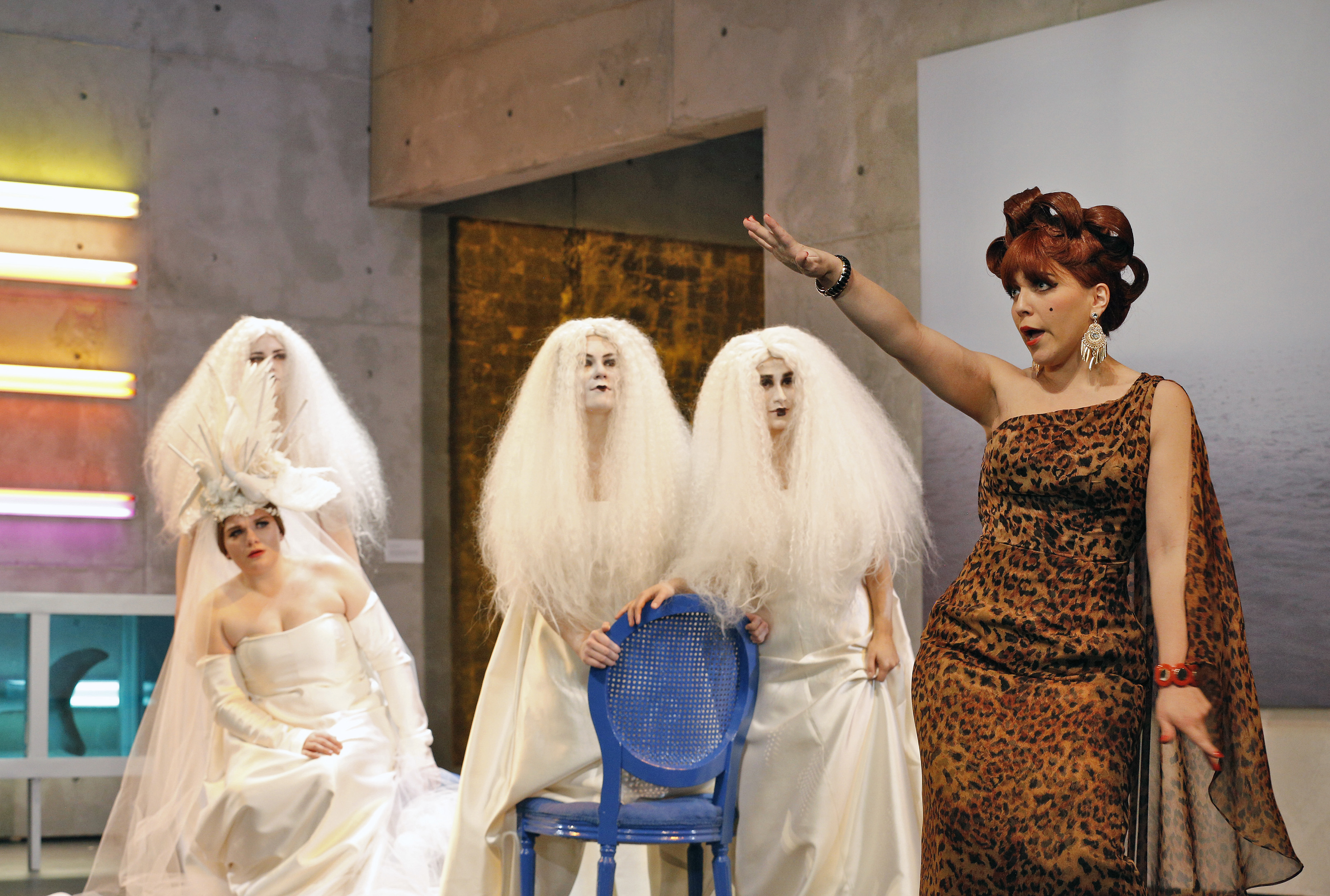
Do you feel there is a unique bond among Curtis students after leaving the school that may not exist in other conservatories or music schools?
Most of my closest friends are those I met during my time at Curtis. Our bond was forged through countless hours spent together, singing and learning on our feet. I can discern when they are having a great day or facing challenges with their singing. One of my dearest friends, Elena Perroni (Opera ’18), can tell exactly what’s going on with me technically, musically, and personally just by hearing me sing. We share not only a close personal bond but also a unique artistic bond, having shared and experienced our most formative artistic years together at Curtis. It is a perfect combination. We trust to push each other as artists in a supportive and healthy way.

What has been one of your most enjoyable roles on stage, and why? Are there any particular roles you aspire to embody in the future?
I thoroughly enjoyed being a part of all the new works with Opera Philly, such as Breaking the Waves, 10 Days in a Madhouse, The Rose Elf, and Wake World. These productions required immense responsibility, and I cherished that experience. During my time at Curtis, I had a blast playing Susanna, Manon, and Zerbinetta, although I don’t see myself singing Zerbinetta again due to the evolution of my voice type. My dream role currently is Violetta in La traviata. That’s what I’m really hoping for in the near future.
What words of wisdom do you have for current Curtis students and recent alumni?
Avoid complacency and laziness. Make the most of every opportunity and continue to inspire yourself, whether you are still studying or are an emerging professional. Set high standards for yourself and strive to be your best.
We often hear cookie-cutter versions of singers, auditions, and presentations of characters. Dare to challenge the status quo and offer something unique. Embrace your individuality and pursue it wholeheartedly.
Visit Ashley Milanese’s official website HERE.
Interview with Ashley Milanese by Ryan Scott Lathan.
Portraits of Ashley Milanese by Lily Anne Portraits and Kristin Hoebermann Photography. Image of Ms. Milanese as Susana in Curtis Opera Theatre’s Le nozze di Figaro by Janos Sutyak. Photo of Ms. Milanese as Erste Dame in Komische Oper Berlin’s Die Zauberflöte courtesy of artist’s website. Image of Johnathan McCullough as Jan and Ashley Milanese as Bess in a workshop scene from Missy Mazzoli’s Breaking the Waves by Dominic M. Mercier. Photo of Ashley Milanese as Zerbinetta in Curtis Opera Theatre’s production of Ariadne auf Naxos by Cory Weaver.


